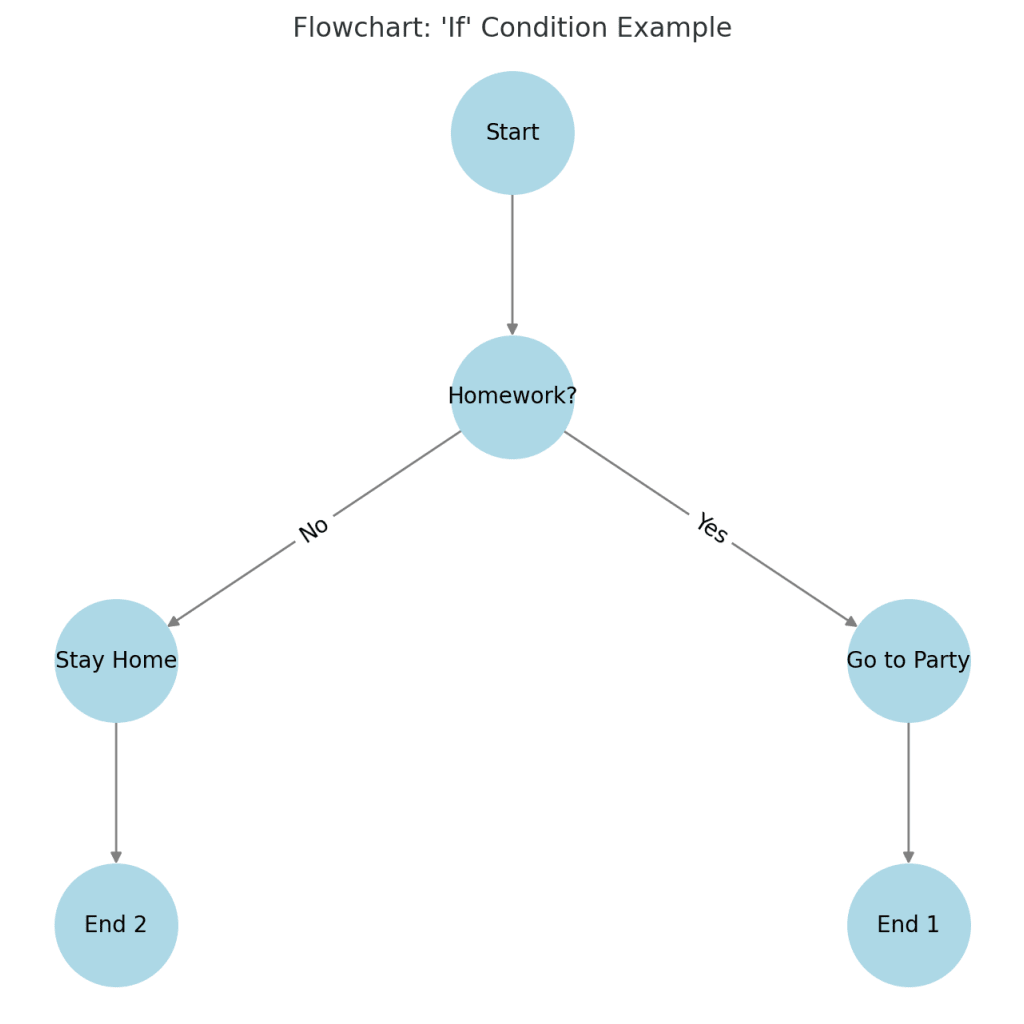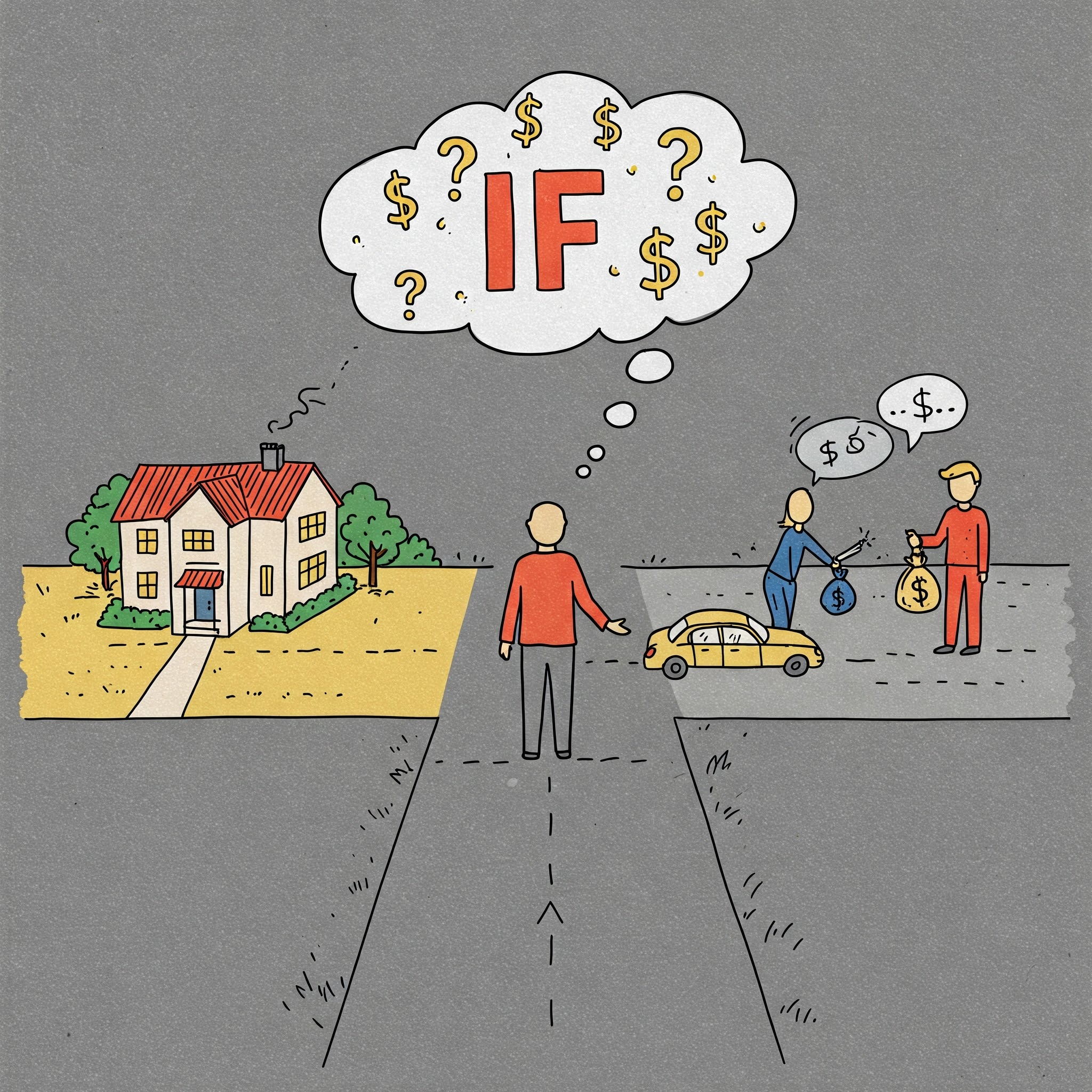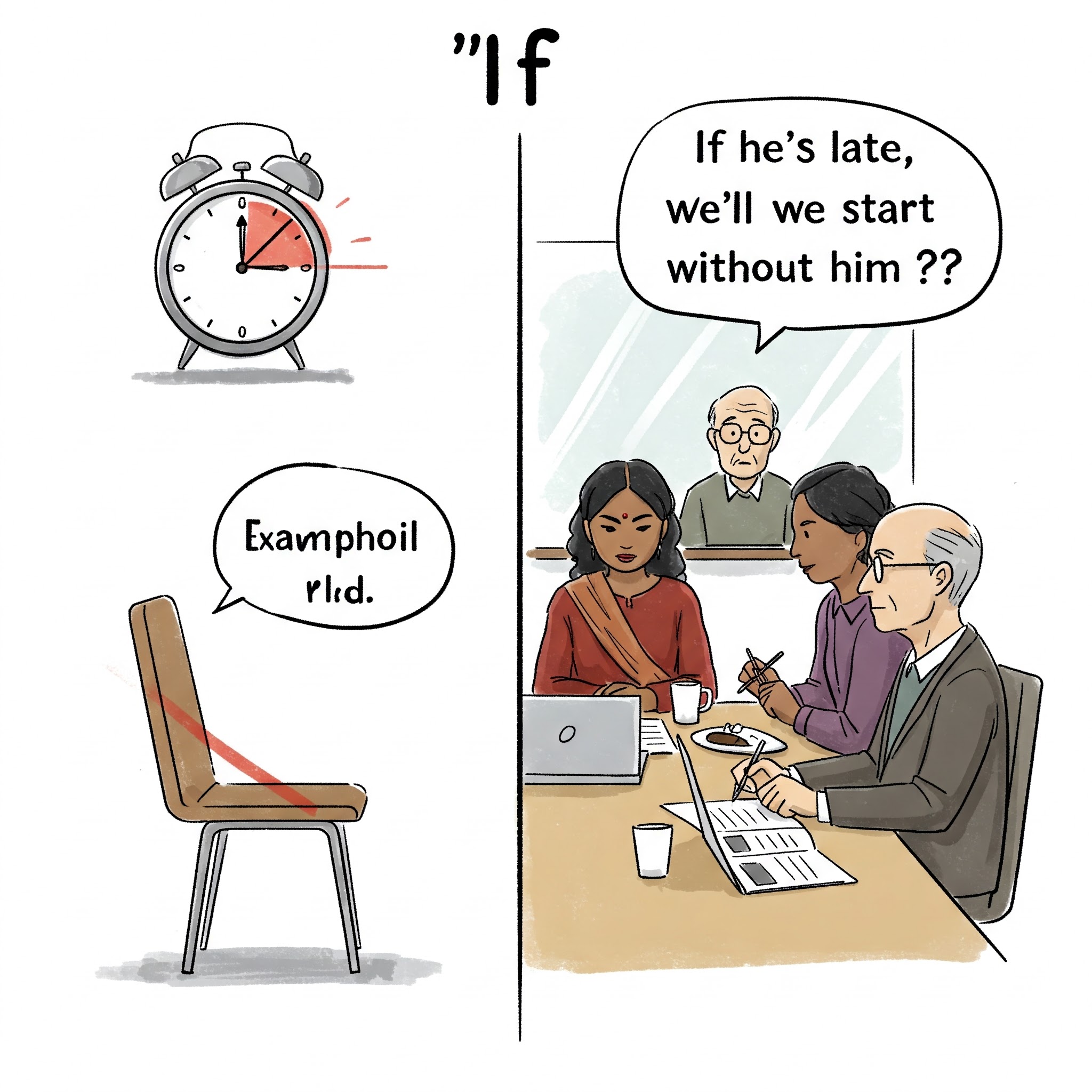If
Definition
If is a conjunction used to introduce a conditional clause or a possibility. It can also function as a noun in certain philosophical contexts, referring to a conditional or hypothetical situation.
Parts of Speech
- Conjunction
- Noun
Pronunciation
American English
- IPA Pronunciation: /ɪf/
- Respelling: if
British English
- IPA Pronunciation: /ɪf/
- Respelling: if
Etymology
The word "if" originates from Old English "gif," used as a conjunction meaning "on the condition that" or "whether." It is derived from Proto-Germanic "*jabai*" (if, whether) and has remained a core part of English syntax since the language's early stages.
Derivatives
- What-if (noun/adjective)
- If-then (adjective/phrase)
- Conditional (related term)
- Ifness (noun, rare)
- Counterfactual (related term)
Synonyms
- Provided
- Assuming
- In case
Antonyms
- None
Usage
The term "if" is commonly used to introduce conditional statements, such as "We will go hiking if the weather is good." It can also be used in speculative or hypothetical contexts, as in "What if we had taken a different route?"
Related Terms
- Condition: A requirement or stipulation.
- Hypothetical: Based on or involving a hypothesis.
- Possibility: A potential occurrence or situation.
Detailed Definitions
Conjunction
- Used to introduce a conditional clause: Indicates that one action depends on another.
- Example: "You can come to the party if you finish your homework."
- Used to introduce a hypothetical situation: Refers to a situation that may or may not happen.
- Example: "What would you do if you won the lottery?"
- Used to express doubt or uncertainty: Indicates a conditional possibility.
- Example: "If he’s late, we’ll start without him."
Noun
- A conditional or hypothetical situation: Refers to a situation that depends on certain conditions being met.
- Example: "Life is full of 'what-ifs.'"
if



🇨🇳 Mandarin
- 如果 (Rúguǒ)
- IPA Pronunciation: /ʈ͡ʂu.ko/
- Respelling: Ru-gwo
🇮🇳 Hindi
- अगर (Agar)
- IPA Pronunciation: /əɡər/
- Respelling: Agar
🇪🇸 Spanish
- Si
- IPA Pronunciation: /si/
- Respelling: Si
🇫🇷 French
- Si
- IPA Pronunciation: /si/
- Respelling: Si
🇸🇦 Modern Standard Arabic
- إذا (Idha)
- IPA Pronunciation: /iða/
- Respelling: Itha
🇧🇩 Bengali
- যদি (Jodi)
- IPA Pronunciation: /ɟɔd̪i/
- Respelling: Jodi
🇷🇺 Russian
- Если (Yesli)
- IPA Pronunciation: /jeslʲi/
- Respelling: Yyeslee
🇵🇹 Portuguese
- Se
- IPA Pronunciation: /sɨ/
- Respelling: Seh
🇮🇩 Indonesian
- Jika
- IPA Pronunciation: /d͡ʒi.ka/
- Respelling: Jee-kah
🇩🇪 German
- Wenn
- IPA Pronunciation: /vɛn/
- Respelling: Venn
🇯🇵 Japanese
- もし (Moshi)
- IPA Pronunciation: /moɕi/
- Respelling: Moshi
🇻🇳 Vietnamese
- Nếu
- IPA Pronunciation: /nəəw˧˩/
- Respelling: Nyuh
🇰🇷 Korean
- 만약 (Manyak)
- IPA Pronunciation: /ma.njak̚/
- Respelling: Mahn-yahk
🇹🇷 Turkish
- Eğer
- IPA Pronunciation: /eɟeɾ/
- Respelling: Edjer
🇵🇰 Urdu
- اگر (Agar)
- IPA Pronunciation: /əɡər/
- Respelling: Agar





